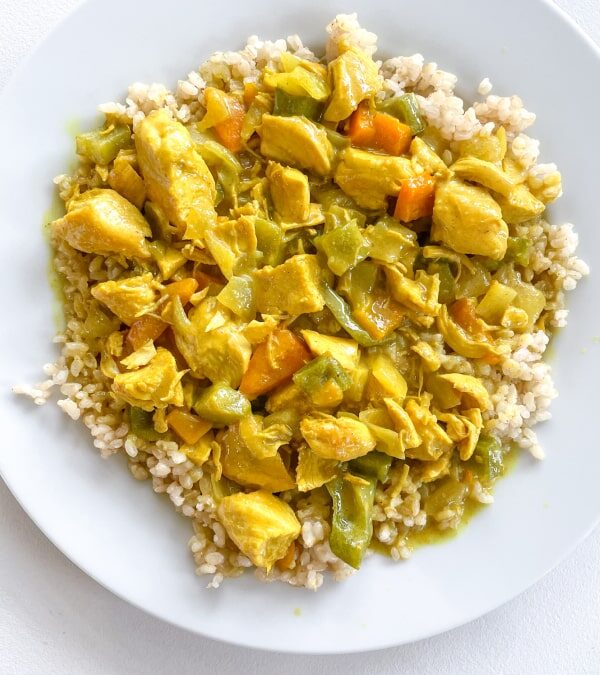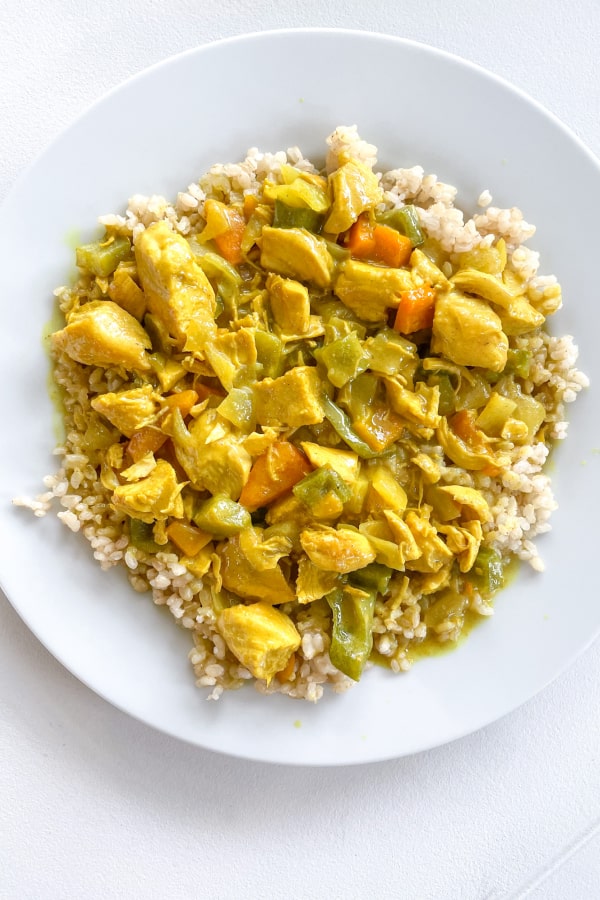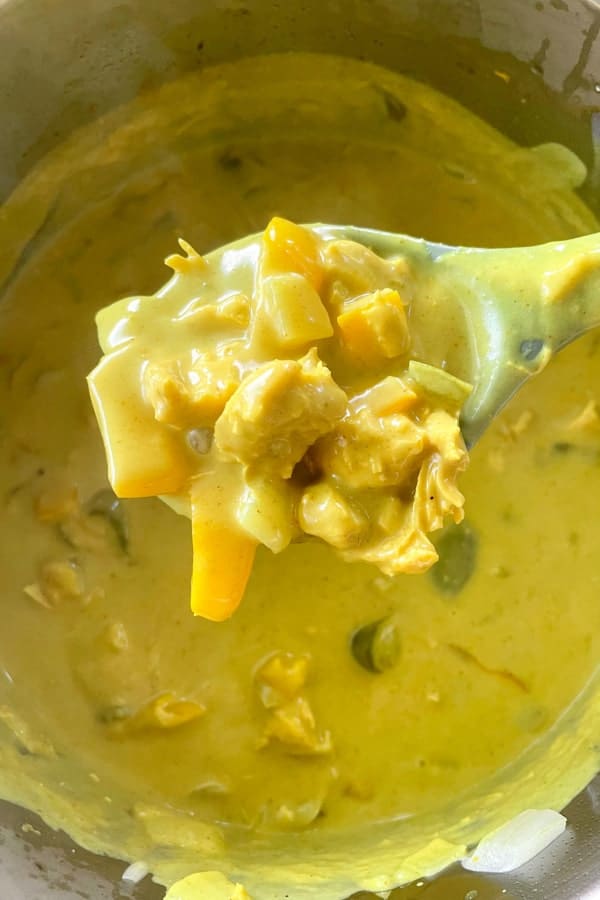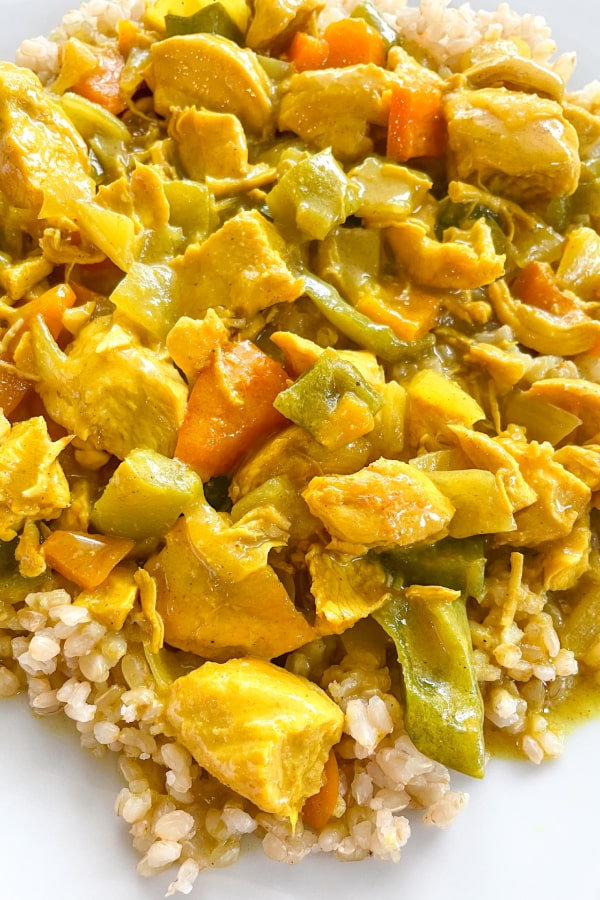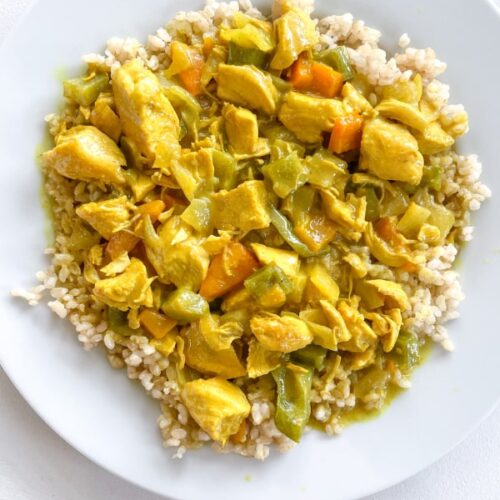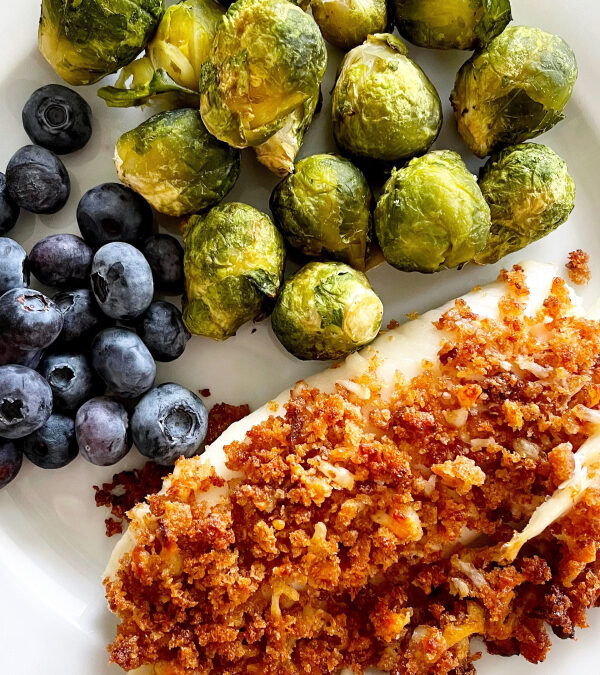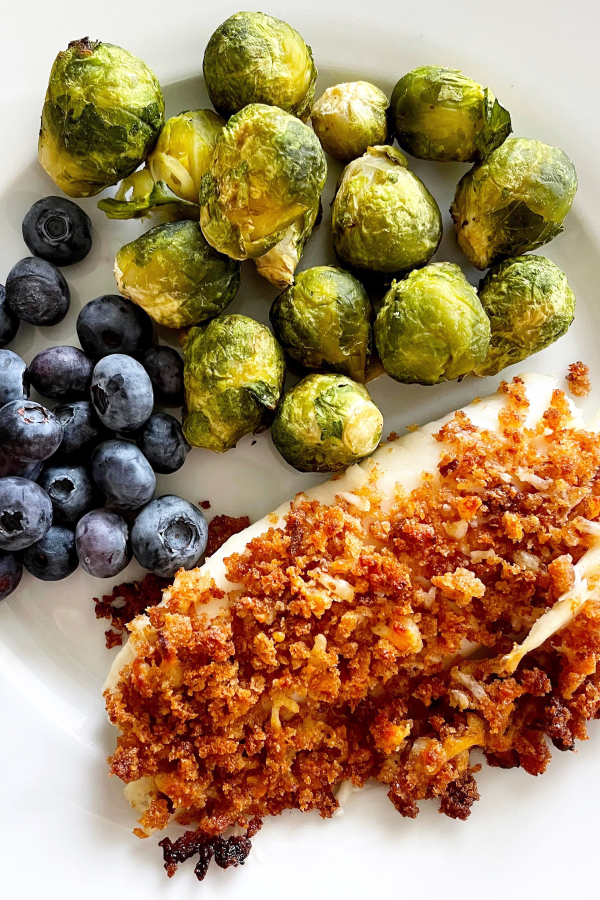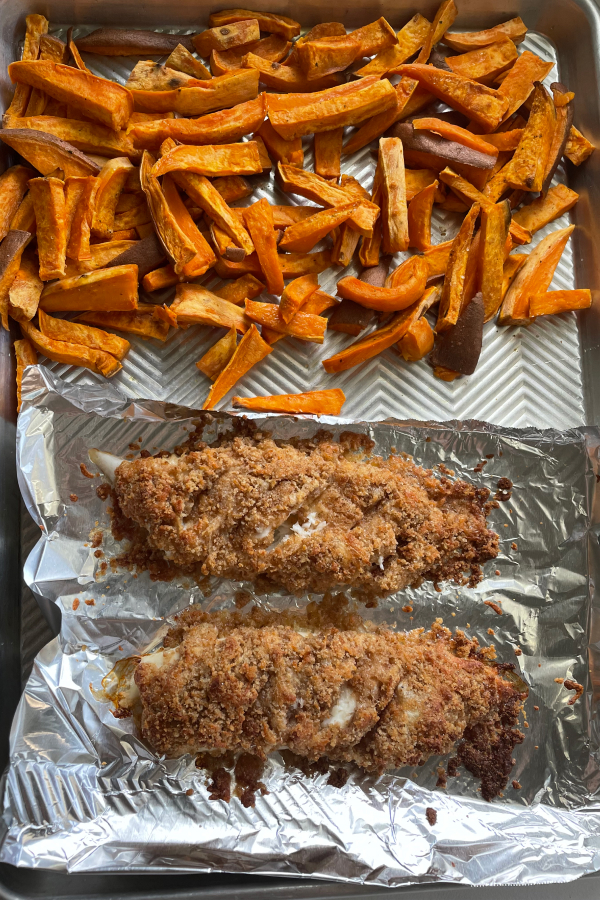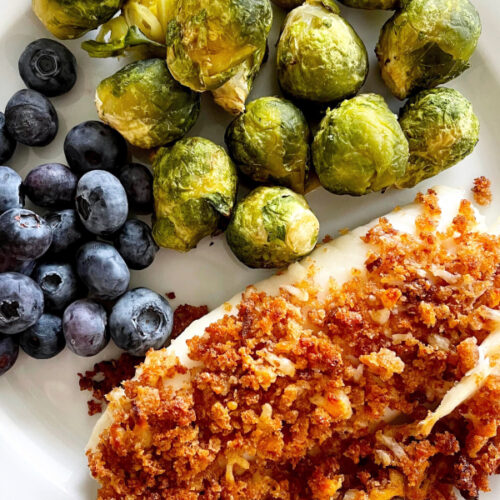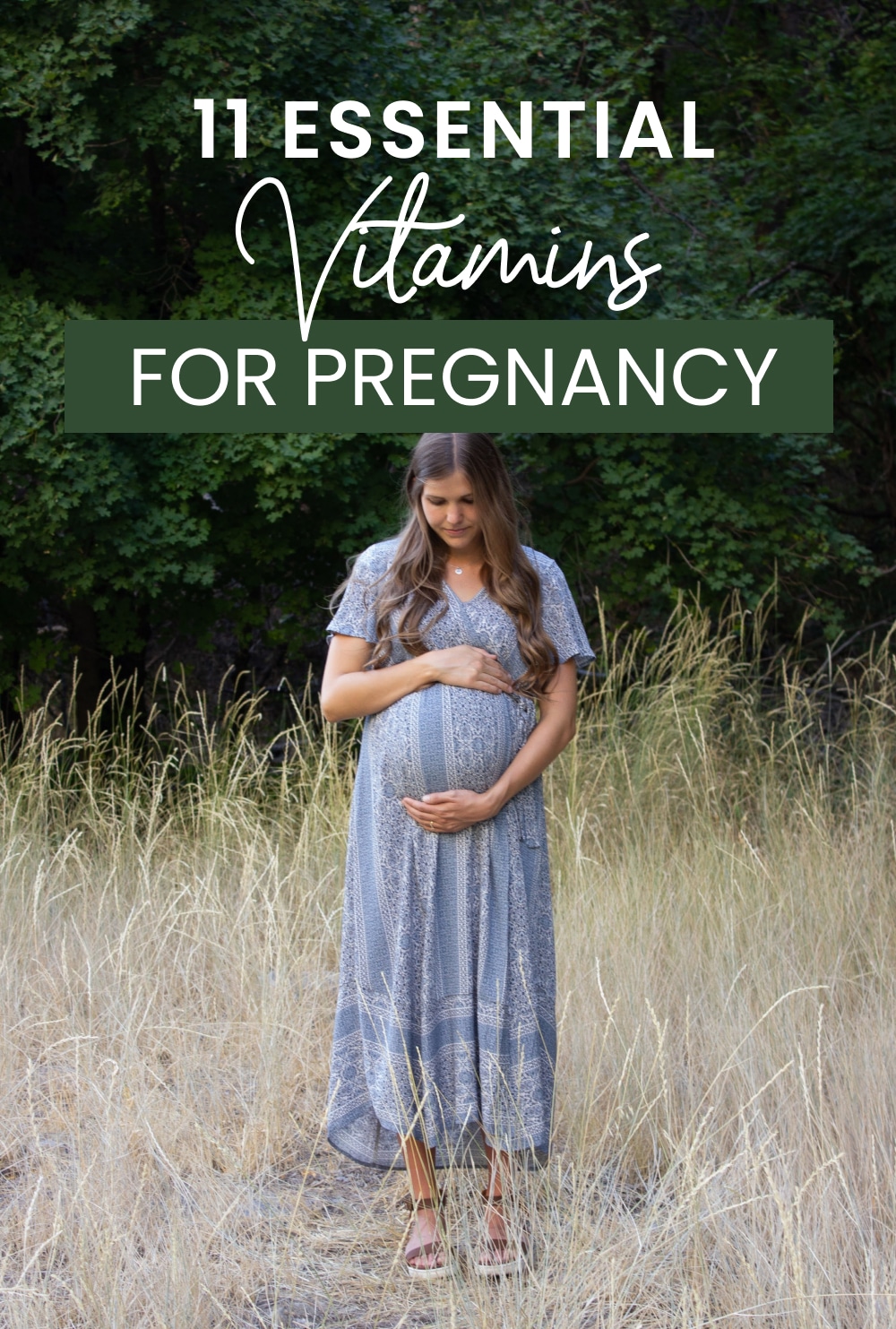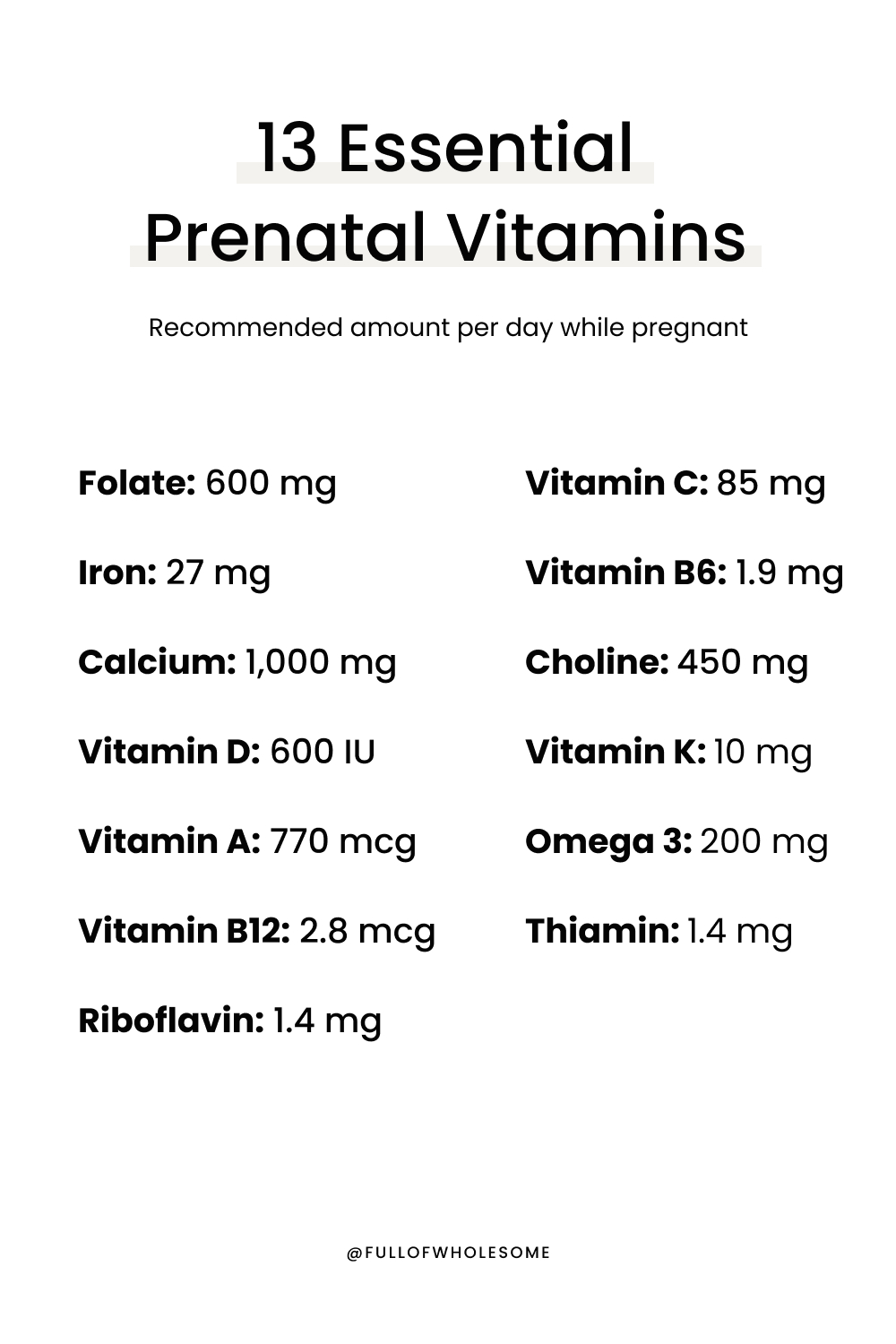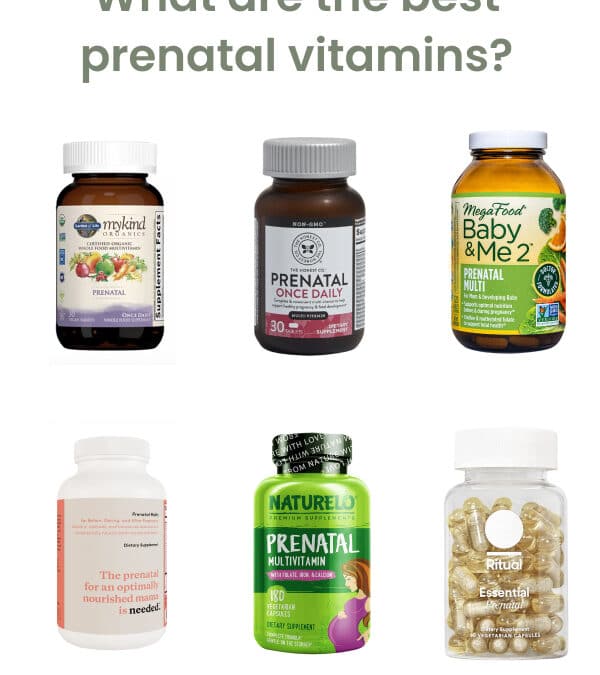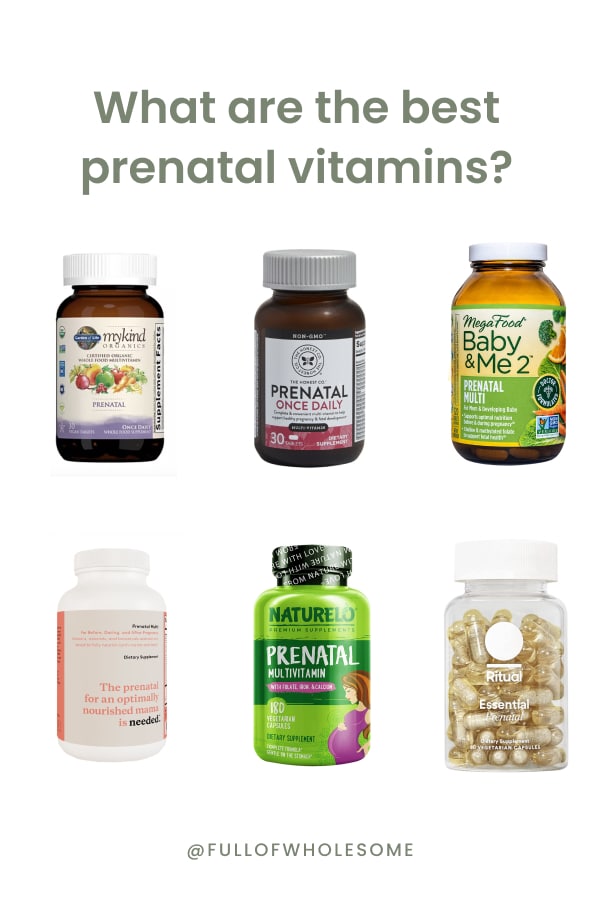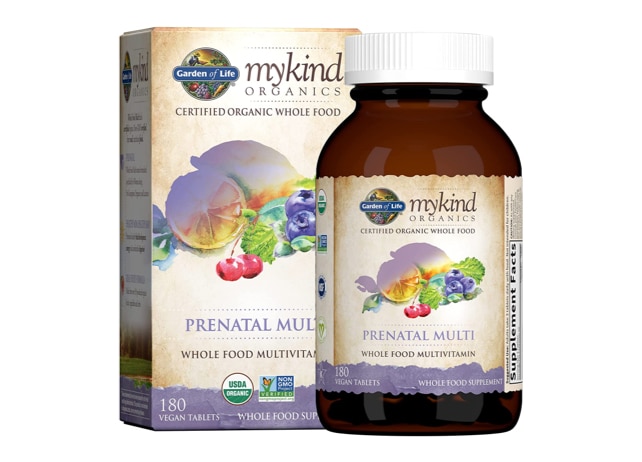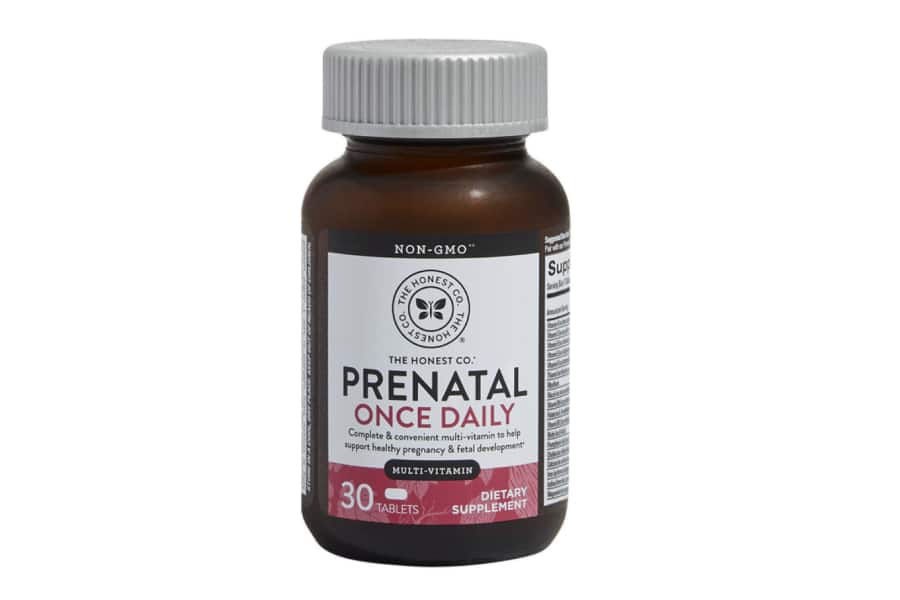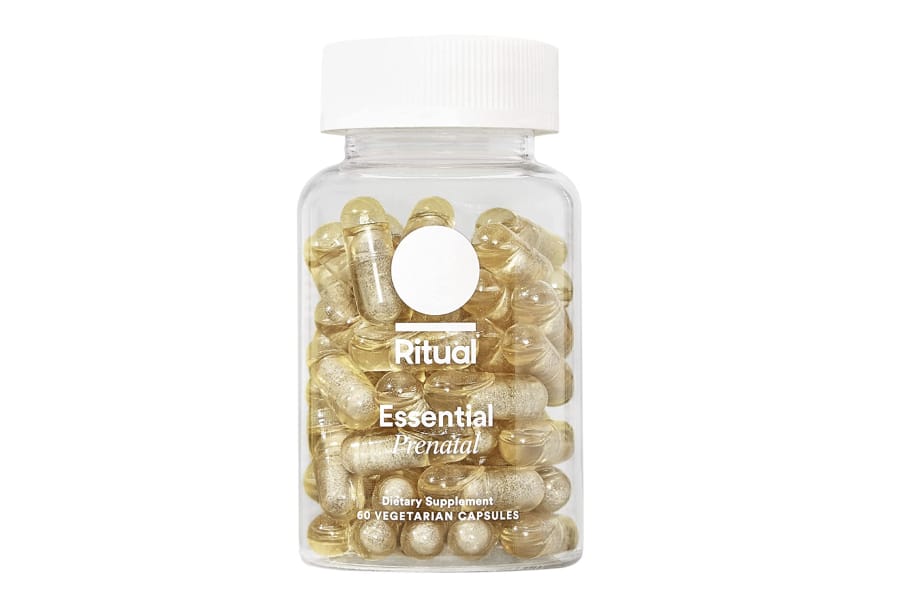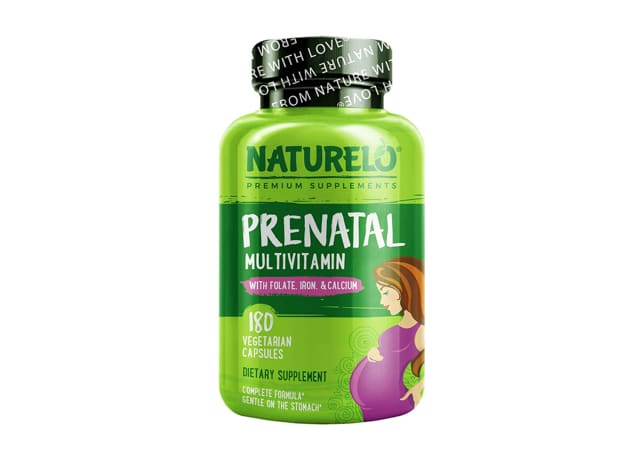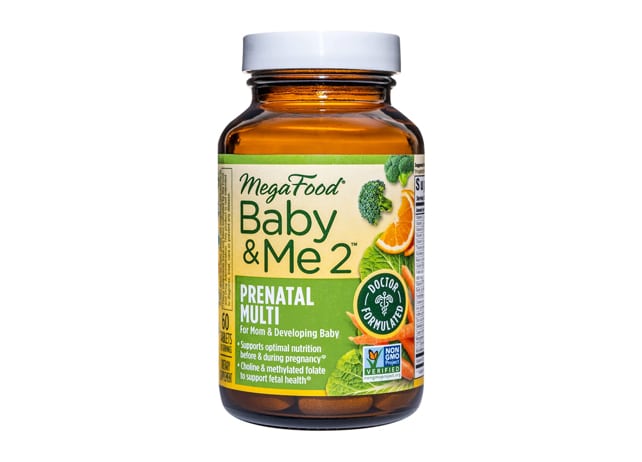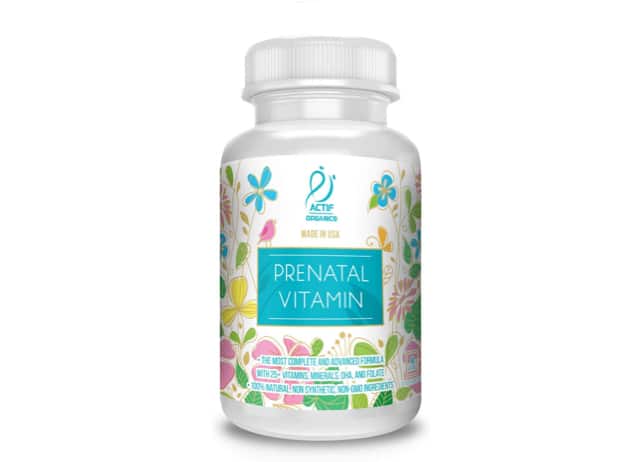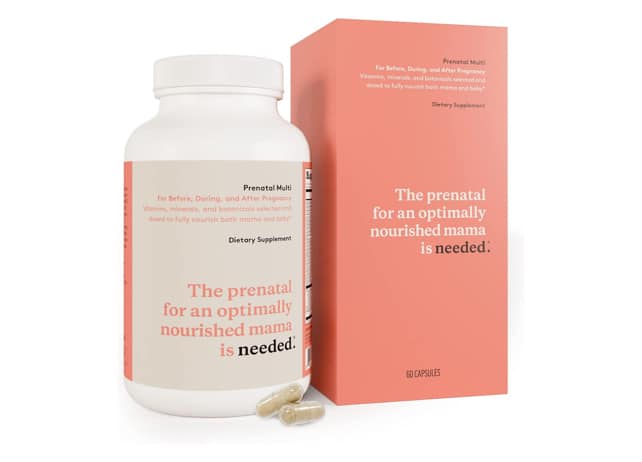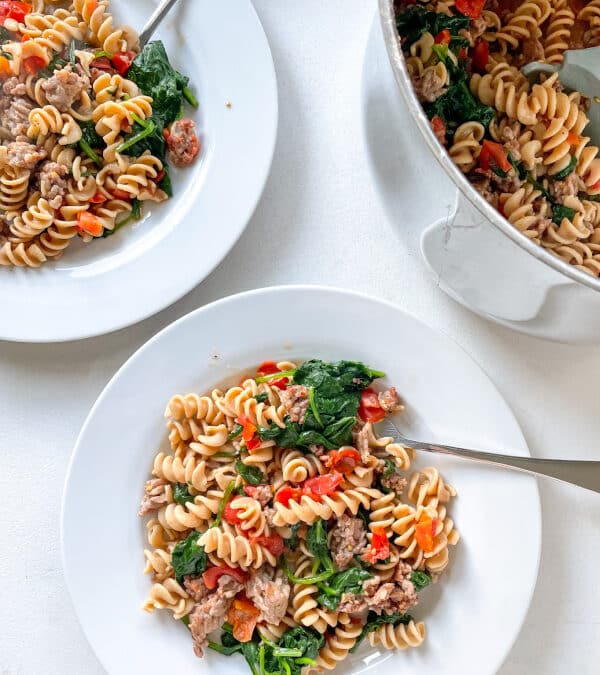
Italian Pasta with Tomatoes and Spinach
Italian Pasta with Tomatoes and Spinach
Looking for a new pasta recipe? Then this Italian sausage pasta recipe is perfect for you! This pasta dish is packed with protein, fiber, and fresh vegetables. It’s a quick healthy dinner that comes together in less than 15 minutes.
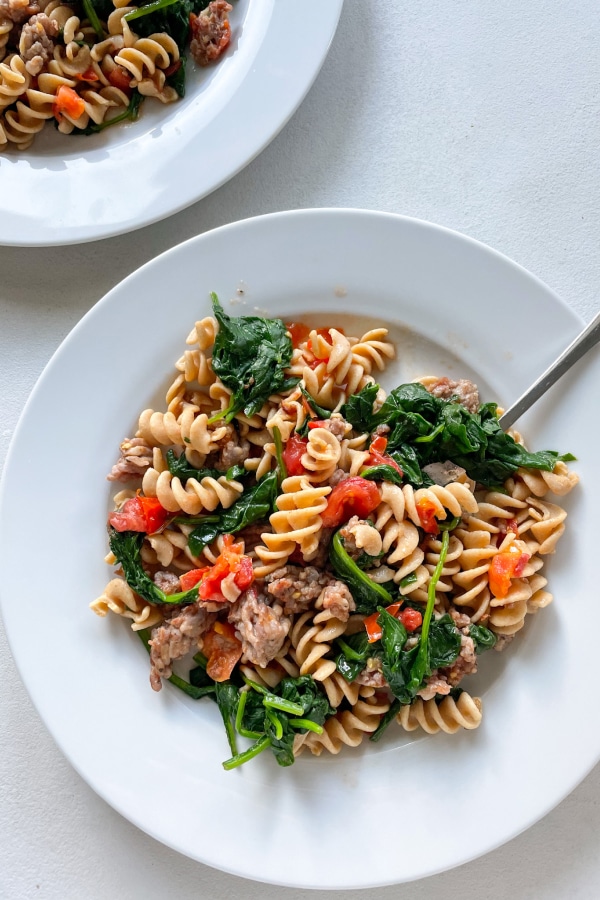
Why you’ll love this recipe
- This pasta with Italian sausage and veggie dish is packed with protein and loaded with veggies.
- Come together in 15 minutes so perfect for a busy night.
- Great meal prep recipe or double batching it for leftovers.
Ingredients for this easy pasta recipe
There are 4 simple ingredients to make this recipe.
- Whole wheat fusilli pasta or bow-tie pasta – I recommend only using short pasta like bow-tie or fusilli pasta since these noodles capture more of the tomato sauce and make the overall taste come together better.
- Spinach
- Italian sausage (mild) – Check the ingredients to make sure there are no weird preservatives added to the Italian sausage that you are buying.
- Tomatoes – I like to use cherry, cocktail, or roma tomatoes. Fresh tomatoes taste better, but canned works great for convenience.
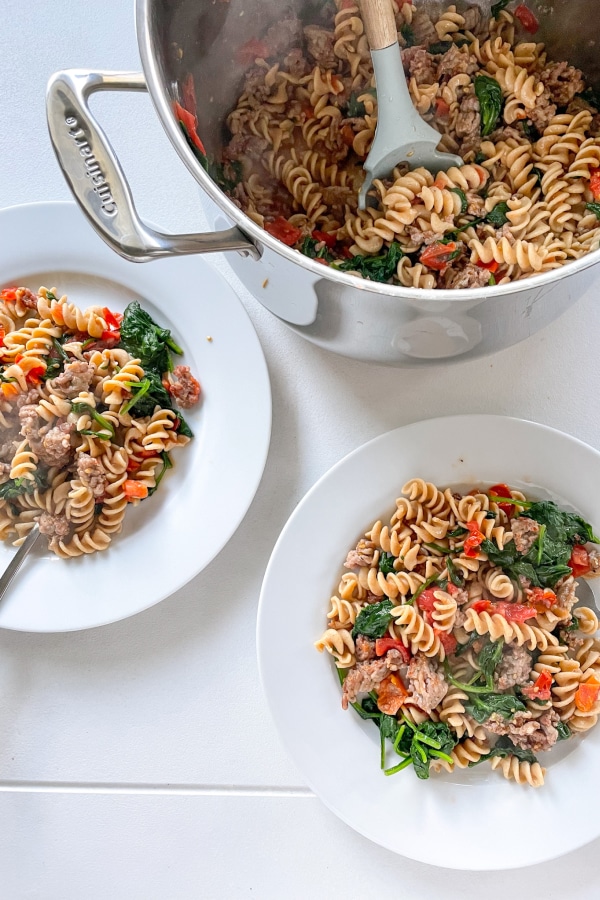
Nutritional benefits in this pasta recipe
- Whole wheat pasta – Is a rich source of fiber and protein. Along with many nutrients to keep your heart healthy. Whole wheat pasta has a higher source of fiber, protein, and nutrients than white pasta.
- Italian Sausage – A great source of protein, iron, and vitamin B12.
- Spinach – Spinach is full of nutrients, vitamins, and antioxidants. It’s high in vitamin K and folate.
- Tomatoes – Full of fiber, vitamin A, and vitamin C. They are rich in lycopene (a nutrient in plants that have antioxidant properties)
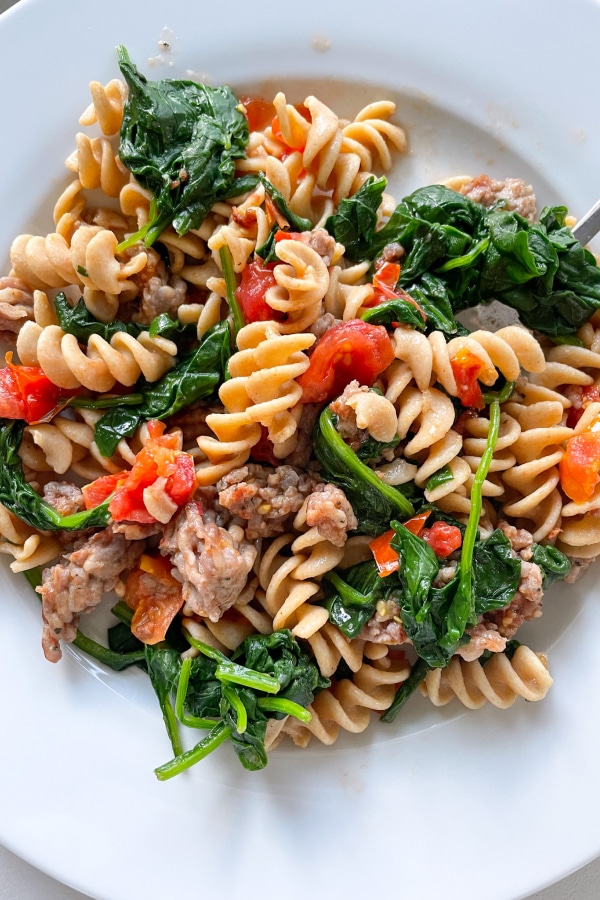
Add spinach to boiling pasta water
Once your pasta is fully cooked. Add your spinach to the hot water before straining your pasta. The spinach will quickly cook and then strain the pasta and the spinach together. It’s one of my favorite cooking hacks to add cook spinach to any pasta dish.
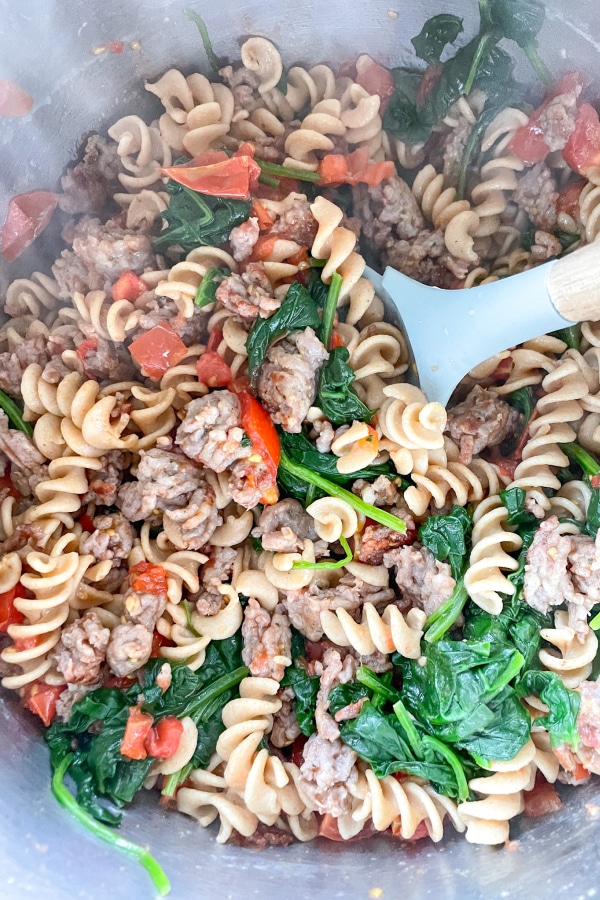
How to store
This pasta recipe is great for meal prep or eating the leftovers the next day. The best way to store this recipe is to put the pasta in a airtight container in the fridge. The food will be good for up to 3 days.
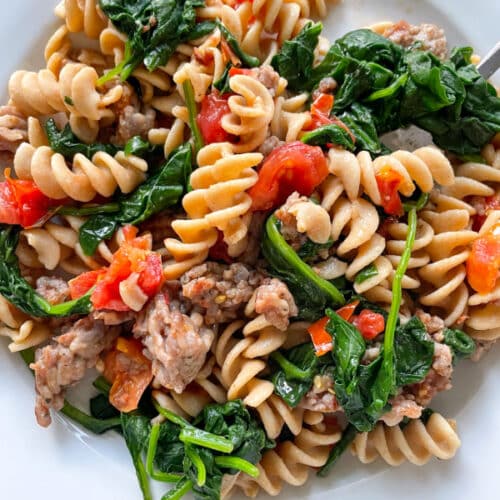
Italian pasta with tomatoes and spinach
Ingredients
- 8 oz Whole wheat pasta
- 1 lb Italian sausage (mild)
- 16 oz Fresh tomatoes diced (or canned diced tomatoes)
- 4 cups Spinach
Instructions
- Fill a pot with water and bring to a boil. Once boiling add 8 oz of pasta noodles and cook to the pacakge instructions.
- While the pasta cooks, cook the italian sausage in a pan over medium high heat. When the italian sausage is fully cooked add in the diced tomatoes. Cook for another 2-3 minutes until the tomatos are softened.
- When the pasta is fully cooked. Before straining add 4 cups of spinach and stir. Strain once the spinach is soft.
- Add the strained pasta and spinach back into the pot. Stir in cooked itlaian sausage and tomatoes. Enjoy!

